The war has been decided, and there is only one battle left: the last one.
Consider this article in National Review by Michael Brendan Dougherty:
For nearly eight years now, I’ve made one simple argument over and over and over and over again: We should not get too involved in Ukraine, because in the end Russia will expend more political will, take more risks, and suffer more consequences to determine the final outcome there. In short, Ukraine is peripheral to us, and dear to them [emphasis mine]. So, in the meantime, our politicians and policy-makers should not put their own, and their nation’s, credibility on the line there. These high-flown promises were, I wrote, “the credit-default swaps of national security, a moral hazard that jeopardizes more than our retirement plans.”
I actually said something very similar right at the beginning of the special military operation:
We don’t care about Ukraine, but Russians do. They love Ukraine, and this is a very easy feeling to pick up. It’s just the simple fact that Americans don’t talk about Ukraine at all, but Russians talk about her constantly. Ukraine’s people, politics, culture, history, and celebrity gossip are all a big deal in Russia.
If a Ukrainian actor gets arrested for drunk driving or cheats on his wife, do you think American news outlets would report it? Of course not. But Russian news outlets would. They would all know who he is and gossip to each other about it for days or weeks. Maybe an embarrassing photo from his mishap would also hit the internet, like his wife throwing all of his things outside. It would become a meme that Russians, and Ukrainians, would poke fun at and instantly recognize, even years later.
That’s because Ukrainians and Russians watch and star in the same movies. Movies that we don’t even know exist, and wouldn’t care enough to watch even if we did know about them. They’re the same people. This idea of Ukrainians and Russians being totally separate and antagonistic ethnic groups is not their idea and never was. It’s an American idea, and we have spent a huge amount of time and money convincing them of it. It’s just as absurd as telling people in Nevada they’re a completely different race than people in California. It’s an absurd, vile, and malicious thing to do, and it was entirely deliberate on our part.
He goes on to say:
Having failed to get what it wanted from Minsk II, Russia decided to take a military option. In other words, deterrence failed. Russia accepted the high risks and costs of switching to a strategy of compellence.
And in three months Russia has done in Ukraine what the Pentagon could not do in Afghanistan over two decades: settle on a reasonable set of goals and develop an effective strategy for annihilating its opponents.
In other words, Russia tried to force regime change in Ukraine by a massive show of force, including a weeks-long siege of Kiev by tens of thousands of soldiers. When this operation had run its course, they withdrew. Our leaders’ objectives were clear from the get-go: overthrow Putin’s government and permanently cripple Russia.
This might seem strange to you, dear reader, but when I think of the war, I think of a courtroom drama.
When you think of “courtroom drama” what’s the first example that comes to your mind? For Americans, we might think of Johnny Depp vs. Amber Heard feud that was recently streamed into every household in every salacious detail recently. The Kyle Rittenhouse and George Zimmerman trials also come to mind. A criminal trial is more relevant an analogy, so I will use that. Let’s consider the tribulations of Kyle Rittenhouse. Don’t overthink it, the whole story can be easily broken down into three phases:
Phase 1. The incident and immediate fallout. Videos of the confrontation and shootout go viral. Just like in the Twilight saga, social media users form two camps, Team Edward and Team Jacob. Or in this case, the people who think Rittenhouse is a villain, and the people who think he’s a hero.
Phase 2: Literally nothing. Rittenhouse and the select few other people directly involved in the case would disagree with this, but for the vast majority of Americans, we simply stopped thinking about the case. Rittenhouse consulted with his lawyers and the prosecution built a case against him, but in Hollywood terms, this all happened “offscreen.”
Phase 3: The trial. In the spectatcular climax of this particular story, jurors found Rittenhouse “not guilty” and he walked away a free man.
With that said, what are the lessons to be learned?
Lesson 1. The most important elements of a story are the beginning and the end. The beginning of a story is the hook, it explains why we should care. The end tells us if it’s a “they lived happily ever after” or “the good guys lost.” Everything in the middle is just filler.
Just to further prove my point, here’s the Google Trends USA report for Kyle Rittenhouse:
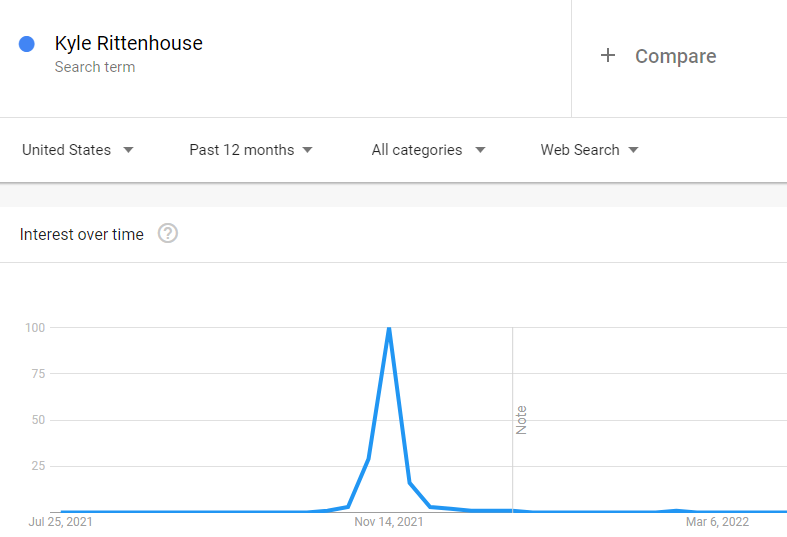
We see this same drama play out over and over again with prosecutors pandering to the court of public opinion, but making amateurish mistakes in the real courtroom. Anyone who can put together an effective defense team has a pretty good chance of walking free, even if he should probably have been found guilty of, well, something (looking at you, George Zimmerman).
In short, the system is good at steamrolling petty criminals and crackheads, but falters in the face of equal opponents.
That brings me to the actual topic of this post, Ukraine, the so-called new Afghanistan for Russia. Like a criminal proceeding, a war has a beginning, middle, and end, but audiences only care about the beginning and end. Aside from the people immediately involved in it, audiences around the world have largely moved on from the war. Consider Afghanistan. Overall, the Afghan National Army suffered 51,000 fatalities… 45,000 of those were in the last few years of the war. That’s extraordinary for at least three reasons:
Reason 1. Despite the stereotype of being guys in sandals who live in caves, the Taliban and their allies inflicted staggering losses on an army that was fairly large (more than 200,000 by the end), and had NATO-standard equipment and training.
Reason 2: Despite all the bad press, the ANSF was extremely resilient and able to absord horrendous losses… as long as NATO supported them.
Lesson 3: The entire western media collaborated to keep these losses on the down low. I myself did not know that ANSF losses were that high until I looked it up for this post. Could the average American correctly guess what Afghan military losses were for the war? I doubt it, and that was deliberate policy. Afghan soldiers being killed and injured by the tens of thousands year after year would be shocking even to the most indifferent layman, and make him question if the war is good and worthwhile. This highlights the media power of simply ignoring a fact, even without the need to actively cover it up. Ignoring it is good enough.
Lesson 4: Despite the years of intense fighting, the ANSF collapsed immediately after NATO support ended. Immediately. That’s consistent with South Vietnam too. It’s also a failure unique to us. Afghanistan didn’t immediately collapse after Gorbachev pulled out.
Look at the Google Trends report for Afghanistan:
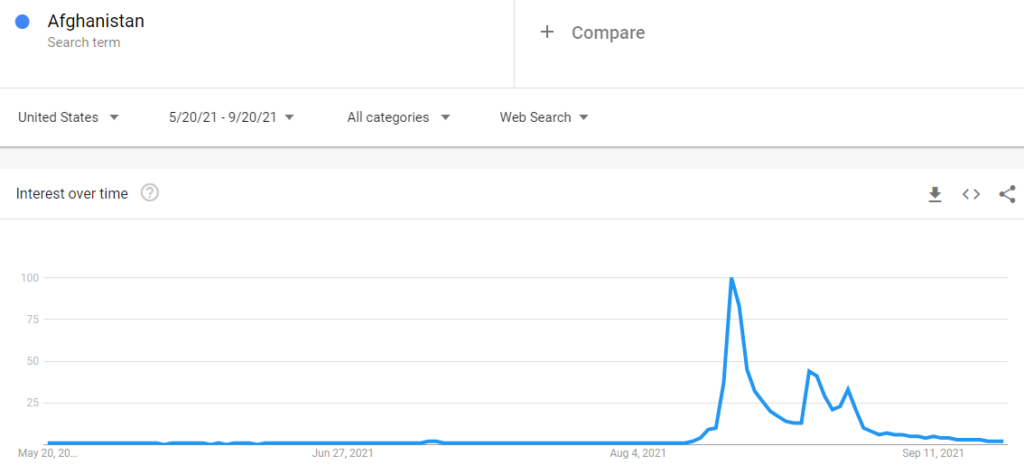
The war had been ongoing for 20 years and become routine. Then the end hit, and it was a humiliating one. We raged for a couple of weeks, then went back to forgetting Afghanistan again.
See this Google Trends USA report about Ukraine:
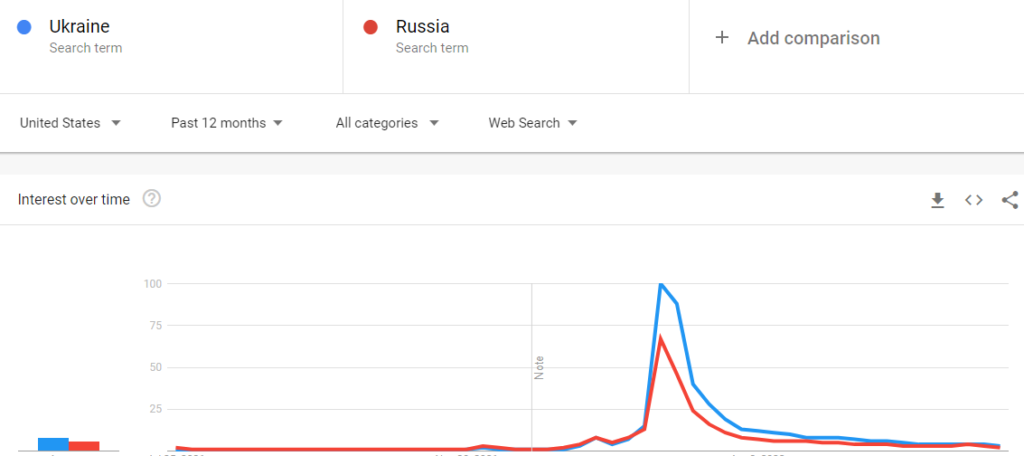
Note that the propaganda deluge has not decreased, but the law of diminishing returns definitely applies to the information war. Here’s a classic example, Snake Island. When the Russians captured it, that sparked a media sensation around the world. When they quietly abandoned it, there was hardly a blip. Why they did that should be fairly obvious, it was just a rock with little to no tactical value.
Remember those M777 howtizers we sent to Ukraine? If you don’t, that’s understandable.
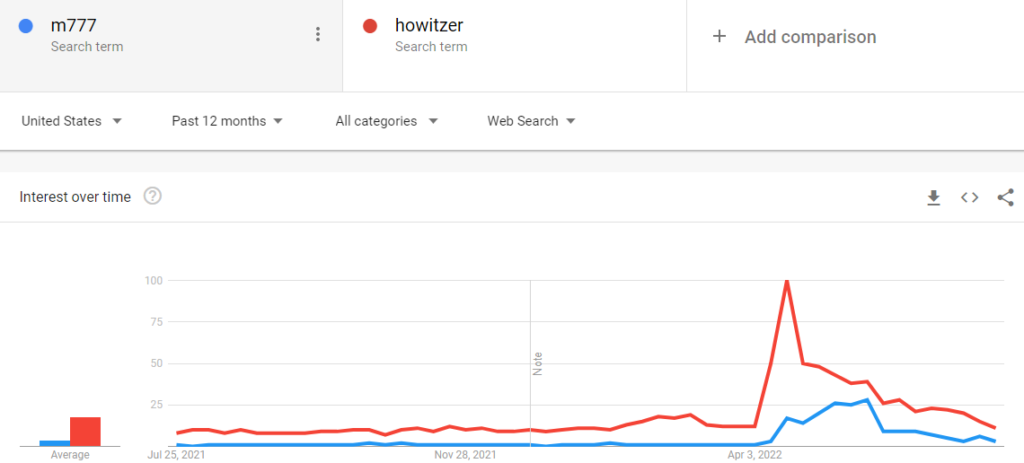
Drip feeding wonder weapons into Ukraine doesn’t make any sense in the physical dimension, it’s entirely a publicity stunt. Consider the HIMARS shipments. Conventional wars are won by using massed artillery to punch holes in enemy lines, and then filling those holes with your own tanks and vehicles. A few blown up warehouses nothing, unless, the goal is just to keep the story trending as long as possible. Think about it. If the US military industrial complex sent 100 HIMARS to Donbass all at once, they would certainly inflict a high degree of damage and loss of life. But then they would be destroyed and the story would be over. That would also be a serious black eye for us, and even a layman would have to question if the Ukraine war is winnable.
Look at the Google Trends for HIMARS. The drip feed, however inconsequential on the physical battlefield, is keeping the media buzz going.
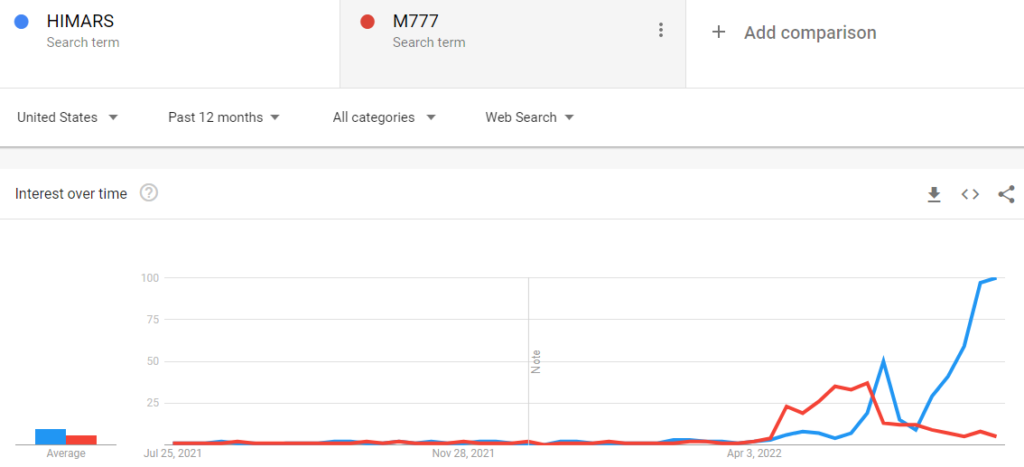
I suspect this also helps hide a weakness. HIMARS are simply irreplaceable. They take too long to build and, however valuable Ukraine is from a propaganda perspective, we can’t empty our own arsenal and leave our own armed forces without MLRS support.
Based on past experience in Afghanistan, I’d wager that Ukraine will be more of the same. The Zelensky government will last as long as NATO supports it. The moment that NATO is unable and/or unwilling support them, their war effort will end. It’s possible, likely even, that the government as a whole will simply collapse (though I wouldn’t be bold enough, or even remotely qualified, to make a concrete prediction that it would). I do, however, find it hard to believe that the Ukrainian nationalist movement will carry on with crippling, unpayable foreign debt and a bloody war on top of it – especially if they have no weapons to fight it with, and not even money to pay their soldiers with.
Winter will be interesting.
Ian Kummer

Support my work by making a contribution through Boosty
All text in Reading Junkie posts are free to share or republish without permission, and I highly encourage my fellow bloggers to do so. Please be courteous and link back to the original.
I now have a new YouTube channel that I will use to upload videos from my travels around Russia. Expect new content there soon. Please give me a follow here.
Also feel free to connect with me on Quora (I sometimes share unique articles there).

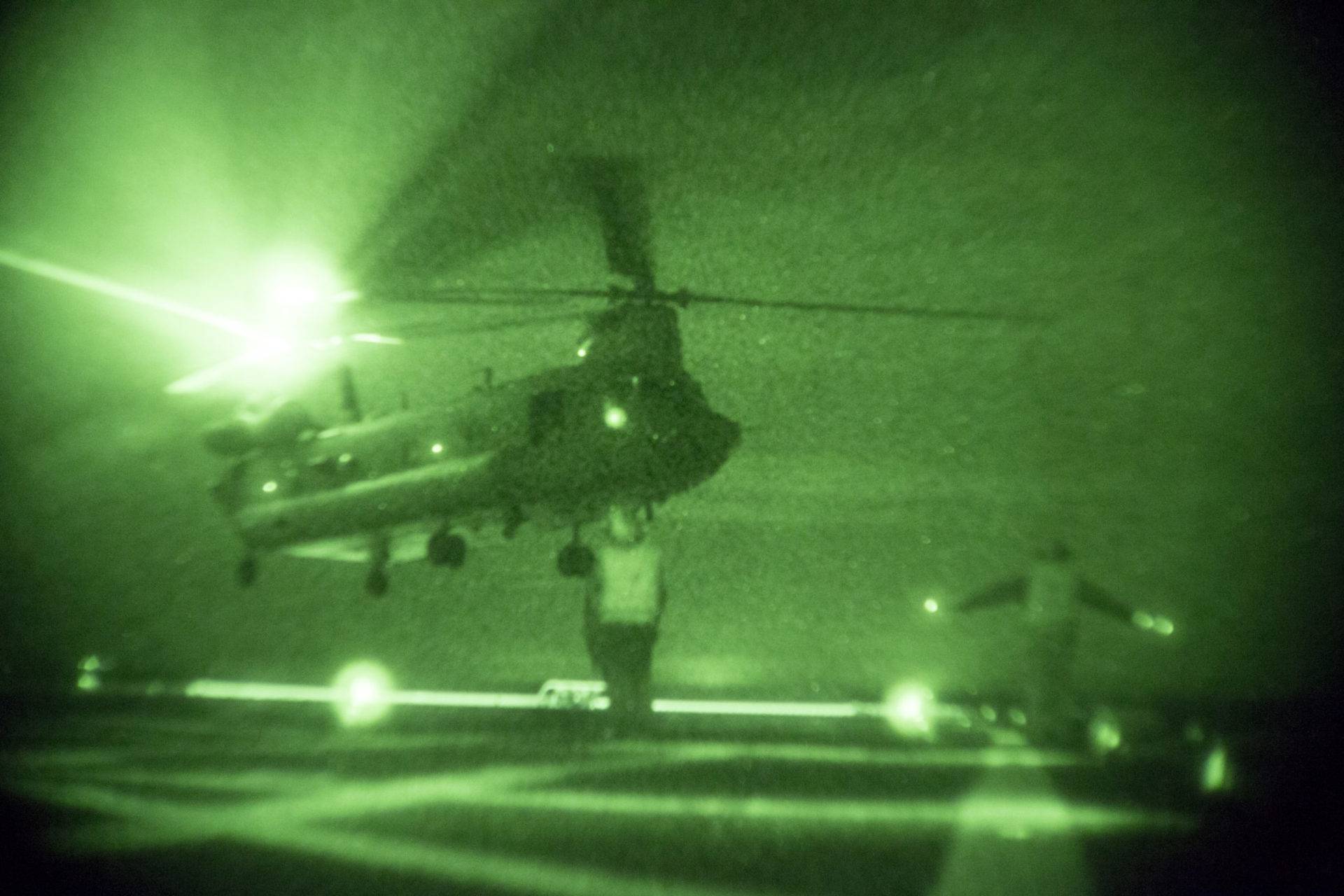

Thanks Ian, nice work.
Nice post.
If the US / UK had not intervened to stop Zelensky negotiating in March then this would have ended then. The west is the only reason this proxy war carries on. You are absolutely right.
I also had no idea of 51,000 Afghan National Army deaths. The west is very wasteful of the lives of other nations. It is totally immoral. Our governments and their puppet leaders in Ukraine clearly do not care about Ukrainian deaths either. A plague on the houses of these evil war mongers.
> Lesson 3: The entire western media collaborated to keep these losses on the down low. I myself did not know
And you would still mantain there is no a “single control room” setting mandayory policies and uncrossable borderlines to your “free media” on topics that matter?
Theory says media are businesses searching for something to make fuzz about and to sell emotional pitch.
The paparazzi meme, the stream of celebrity gossips and unexpected (?) nude slips – seems to support the notion.
At the same time, there is this figure that alone could be a new great clickbate – yet uniform crickets.
I’ve seen a clip how that works with the media.
There was a guy saying that the journalists need trusted informants – especially important now that they have to write a lot in short amount of time (investigating not encouraged): they simply get their information from CIA. What can be more trustworthier than CIA, right? And the CIA in turn got assets. win-win, right…? 😉
what can be more trustworthy than a CIA informant, of course! 😀